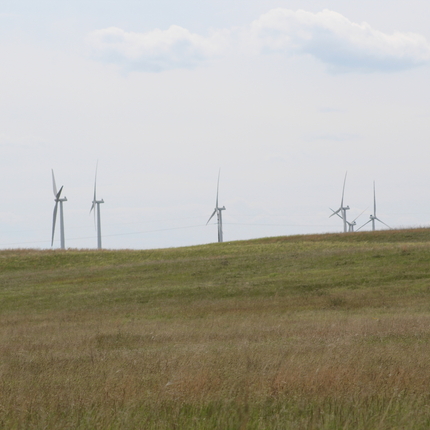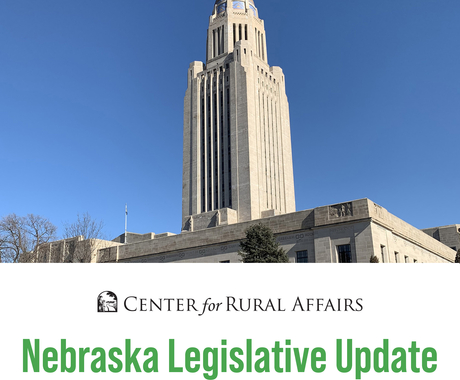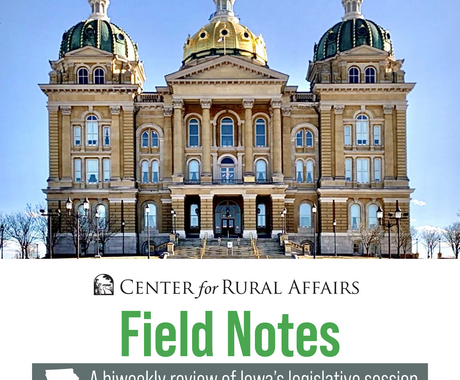By Lucas Nelsen, former staff member
Your rural voice is a collection of testimony, official comments, appropriations requests, and other formal communications from the Center for Rural Affairs to government departments, officials, and more. Each item was written and delivered by our staff on behalf of you, our constituent, as we work to build a more vibrant future for rural communities.
This testimony was submitted in opposition of Nebraska Legislative Bill (LB) 373 to the Government, Military, and Veteran Affairs Committee on Jan. 31, 2019.
Connecting rural Nebraskans to new economic development opportunities is a key piece of the long-term health of our small towns and communities.
The Center is opposed to LB 373 because it would remove local control from Nebraskans and limit economic opportunities for rural communities. According to wind resource assessment data from the National Renewable Energy Laboratory, Nebraska has 465,000 megawatts of potential wind energy resources. Wind energy resources developed to date have made a positive impact on the economies of several rural communities in Nebraska. The industry supports about 2,000 jobs in operations and maintenance, construction, manufacturing, and many other support sectors. Landowners that host turbines throughout the state also receive annual land-lease payments that can average $6,900 per turbine, providing a stable source of income.
Wind development also provides Nebraska counties with numerous benefits, notably with new property tax revenue that can decrease the burden on county residents. In 2017, the nameplate capacity tax on wind farms generated $3,065,623 in revenue for Nebraska counties, with $1,862,959 going to local schools, according to the Legislative Fiscal Office. Property taxes are also collected on facilities associated with the wind energy projects, making wind development a significant source of new tax revenue for Nebraska counties. Because there are few other options for counties to generate money without raising taxes, wind development is a valuable tool for increasing revenue to meet the needs of local residents.
Local decision making
The Center believes local officials and communities are best equipped to determine regulations regarding the siting and zoning of wind energy systems. Residents have unique perspectives and insight that aid county officials in tailoring ordinances to fit the needs of their community. LB 373 would remove that control from Nebraskans and instead require them to adopt standards that include provisions mandated by the Legislature.
Imposing a three mile setback from dwellings would decrease the viability of many wind projects or eliminate development in much of the state. This requirement is not only a barrier to the development of a wind energy project, but to economic opportunity for many communities. These setbacks will remove wind energy as a tool for generating new revenue for counties and reduce the number of landowners that could benefit from hosting a turbine on their property. This distance would also subsume existing setbacks that counties have put in place, undoing the work of local officials and the input that local residents had in crafting those standards.
Additionally, LB 373 would force counties to create zoning standards that comply with state-mandated requirements. Counties would be unable to host a wind energy project unless they adopted regulations that used a one-size-fits-all template prescribed by the Legislature. There are currently no restrictions that would prevent counties from adopting the setbacks and other provisions outlined in LB 373. Nebraska counties are already capable of creating regulations on wind energy and there is no reason to remove local residents from an active role in deciding the pieces should be included in ordinances.
Working together to identify and address concerns
Crafting well-balanced standards is essential to protecting residents, while also allowing communities to identify the best way to take advantage of their renewable energy resources. LB 373 would remove many Nebraskans from this process while eroding local control. To fully capture the benefits of new renewable generation, local stakeholders and developers must work together to identify and address concerns, ultimately determining the best way to build renewables and capture the benefits of wind energy.




